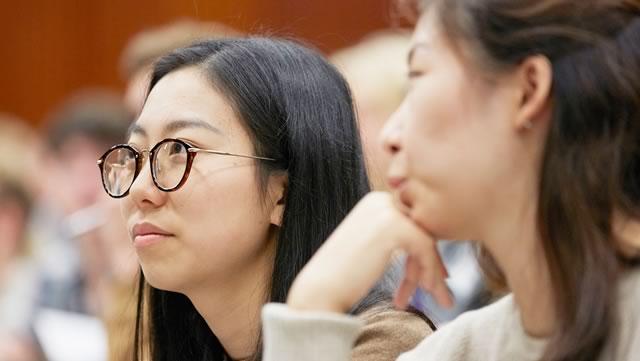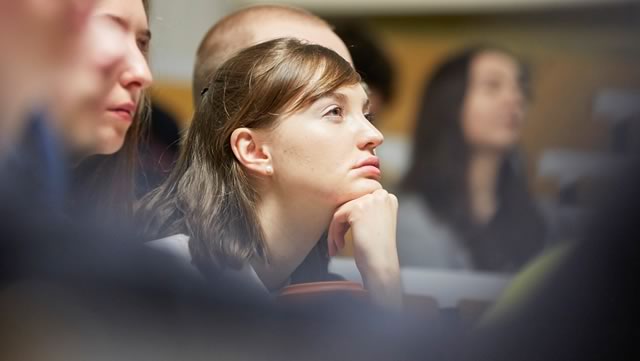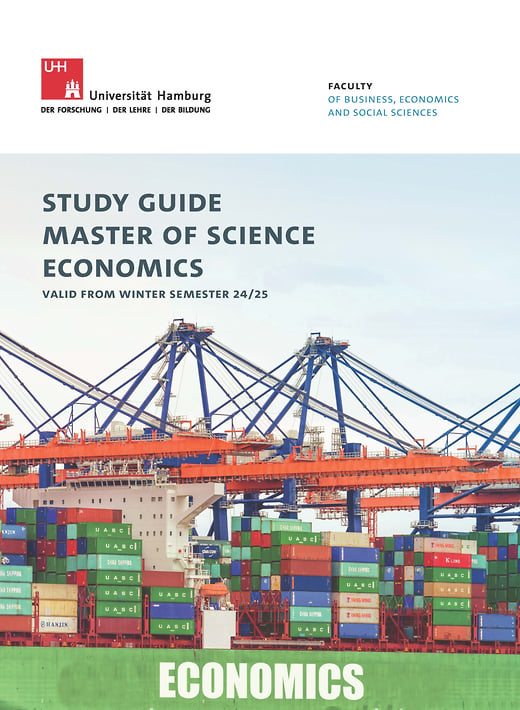How your Economics program is structured
We are pleased that you are interested in the master’s program in Economics at the University of Hamburg. If you aspire to a career in higher education at the national or international level, want to work in research or in commerce, for example, by going into consultancy, then you are exactly right at the WISO faculty. We prepare you for the challenges of trade and industry and work in the faculty with cutting-edge methods of theoretical and empirical research. The master’s program is conducted in English exclusively and offers you an in-depth education of an international standard.
Research is best learned by conducting research
We support and foster your own research aspirations. Thus, you have the possibility to pursue your academic interests by choosing from our range of elective modules. If you then want to gain new insights into the behavior of people in economically relevant situations in the framework of your master’s thesis, you can do independent research. For this purpose, for example, the WISO faculty’s super-modern experimental laboratory is at your disposal. Incidentally, on account of its facilities, the lab enjoys an outstanding reputation internationally and is therefore also utilized by other universities such as Bonn and Zürich.
First the Compulsory Exercises and then Freestyle!
At the beginning of your master’s program, you will have to work through three demanding obligatory modules, to be completed in the first semester: Advanced Microeconomics, Advanced Macroeconomics, and Advanced Econometrics. In the second and third semesters, out of up to ten courses offered, you select five per semester. In recent years, for example, we have offered courses on the following subjects: Game Theory, New Keynesian Economics, Public Choice, Labor Economics, History of Economic Thought, Behavioral Economics, International Political Economy, Dynamic Optimization, Theory of the Firm, Rationality in Experimental Economics, Environmental and Resource Economics, Climate Dynamics and Climate Economics, Empirical Labor Market Economics and the German Socio-Economic Panel, the Economics of Growth and Development, and Health Economics. In the fourth semester, you write your master’s thesis, for which you have to receive official approval.
Your master’s degree in two years, one year or in part-time studies
As a general rule, the master’s degree in economics in the WISO faculty is designed to take four semesters, i.e., two years. However, there are also exceptions to the rule. If you have achieved above-average performance in your first degree and have acquired the knowledge and skills of all accompanying lectures of the compulsory modules of MSc Economics (Methods of Microeconomic Analysis, Methods of Macroeconomic Analysis and Methods of Econometric Analysis), you may be able to complete your master’s program in one year, if approved by the Program Director. Talk to us about it.




